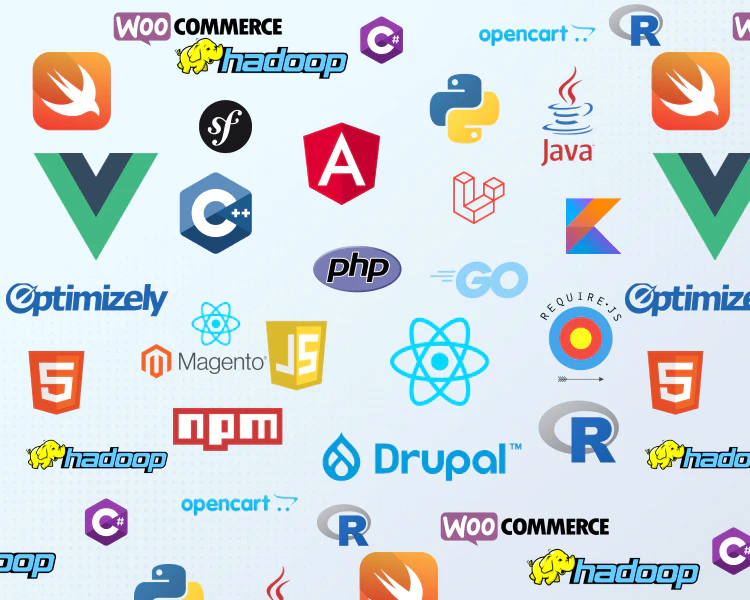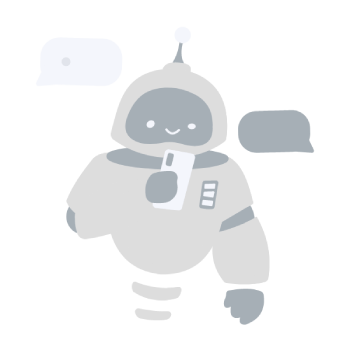
Learning development from scratch can be a rewarding journey, but it can also be challenging. Don’t worry about that, here's a step-by-step guide on how to get started with development.
First, you have to know “What is programming?” Programming, in the context of computer science and software development, refers to the process of writing instructions that a computer can understand and execute. These instructions are written using a programming language, which serves as a medium for humans to communicate with computers. Start by researching and understanding what software development is. Learn about the different programming languages, frameworks, and tools that developers use.

Second, determine your consumption goals. This step in the action learning setup is to clearly define your goals. What do you want to learn programming for? There are many fields in programming such as web development, mobile applications, artificial intelligence, data science, and many more. Determining your focus will help you choose the right programming language and documentation. Development has many branches, including web development, mobile app development, game development, data science, and more. Decide which area interests you the most.

Third, choose your language. Programming languages are a programmer's primary tools, and choosing the right one for you is important. Programmers write code using programming languages such as Python, Java, C++, JavaScript, Ruby, and many others. Each language has its syntax (rules for writing code) and semantics (meaning of the code). The choice of programming language often depends on the specific task and the programmer's preference. For beginners learning programming, Python is often recommended because it has an easy-to-read and easy-to-understand syntax. However, if you want to develop mobile apps, you might consider learning Swift (for iOS) or Kotlin (for Android).

Fourth, One of the most valuable assets for programming learners is good learning materials and resources. Based on the programming language you have chosen, you can search for free or paid books, websites, blogs, and online courses. Some popular sources include:
Python.org: Python's official site with free documentation and learning resources.
Codecademy: A website that helps you learn programming through practical exercises.
Coursera: A platform containing many programming courses from top universities.
Stack Overflow: A community of developers where you can learn and ask questions.
Fifth, Continuous Practice Programming is a skill. Start coding now. You can try writing simple programs like "Hello World" to get familiar with the syntax of your chosen language. You can then create smaller projects to apply what you learn. Continuous practice will help you master and improve your coding skills. Furthermore, creating logical thinking, constantly thinking, strengthening mindset, and improving work performance.
Sixth, understanding data structures and algorithms. To become a good programmer, you need to understand data structures and algorithms. Data structures are how you organize and store data, while algorithms are how you process and manipulate data. Courses and books on data structures and algorithms are available to help you master this knowledge.
Data structure is how you organize and store data in a program. These are some common data structures:
Array: A collection of elements of the same type, arranged in order.
Linked List: A list of linked nodes, each node containing data and a link to the next node.
Stack: A stack-like data structure, working on the "LIFO" principle (Last In, First Out).
Queue: A queue-like data structure, working on the "FIFO" principle (First In, First Out).
Tree: A hierarchical structure that can be used to quickly find data.
Graph: A collection of vertices and edges, used to model complex relationships.
Algorithm
An algorithm is a set of instructions or steps to perform a specific task. Here are some examples of algorithms:
Binary Search: An algorithm used to search for an element in a sorted array.
Quicksort: An algorithm that quickly sorts arrays by dividing the array into smaller parts and sorting them.
Dijkstra's Algorithm: Used in graphs to find the shortest path between two vertices.
Greedy Algorithm: Solve optimization problems by always choosing the best solution at the present time without regard to the future.
Dynamic Programming Algorithm: Used to solve sub-overlapping optimization problems.
BFS Algorithm (Breadth-First Search) and DFS Algorithm (Depth-First Search): Used in graphs to search or browse vertices and edges.
Mastering data structures and algorithms is a long but valuable process. Don't hesitate to start learning and practicing them, because they are the foundation for you to become an excellent programmer.
Seventh, joining the programming community is a great way to learn and connect with other programmers. You can join online forums, like Reddit or Stack Overflow, to ask questions and share your knowledge. Also, consider attending your local programming events and conferences.
Here are some ways you can get involved in the programming community:
Join Programming Forums: There are many online forums specifically for programmers, such as Stack Overflow, Reddit's r/learn programming, and GitHub's Community. You can join to ask questions, answer other people's questions, and learn from the community.
GitHub: GitHub is a popular open-source code management platform, and it is also a place to build a reputation in the programming community. You can participate in open-source projects, contribute source code, and learn how to work with development teams.
Learn From Open Source Projects: Open source is a great resource to learn programming. You can search for open-source projects related to your interests and study the source code to understand how programmers solve problems.
Participate in Programming Events: Programming events such as workshops, group learning, and competitions are good opportunities to meet and learn from interested people.
Blog And Social Media: Follow blogs and social media accounts of programmers and experts in your field of interest. They often share knowledge, guidance, and approaches to programming.
Join an Online Programming Group: There are many programming groups on platforms like Facebook, LinkedIn, or Discord. Join these groups to connect with people with similar interests and learn from them.
Producing Educational Content: If you've gained knowledge, consider blogging, recording instructional videos, or creating instructional materials. Sharing your knowledge with the community will help you consolidate your knowledge and contribute to the development of the community.
Last but not least, be patient and never give up. The journey of learning programming can be difficult and sometimes frustrating. However, the process is well worth it. Be patient and never give up. Learning to code is an ongoing journey, and you won't be able to master everything in one day.
Hopefully, this article can help you identify and orient your path to becoming a programmer. Wish you luck and success on the path you have chosen.

More than 1500 employers trust Devwork for their recruitment needs:
Cost optimization - Save time - Professional quality
Sign up for Devwork today to increase your company's competitiveness.
Or contact us
Email: hello@devworkx.vn
Tag Cloud:
Author: Phan Thị Hải Anh
Related Articles

Exploring the power and diverse applications of IoT in our life
In our ever-connected world, the Internet of Things (IoT) has emerged as a transformative force, revolutionizing industries and the way we interact with technology. From smart homes to industrial automation, IoT has found its way into various aspects of our lives. Let's find out its wide-ranging applications that are shaping the present and future of technology in this article....
Portrait of a Vietnamese developers
The tech industry in Vietnam has been experiencing significant growth in recent years, becoming an integral part of the country's economy and global tech ecosystem. Vietnamese developers play a crucial role in shaping the industry's trajectory. This article delves into the characteristics of Vietnamese developers, examining their age, experience, gender, and location. By exploring these aspects, we can gain insights into the diverse and dynamic nature of the Vietnamese tech workforce.

The impact of ChatGPT on software engineer job opportunities in 2023
In recent years, technological advancements in artificial intelligence (AI) have begun to reshape various industries, and the field of software engineering is no exception. One notable development is ChatGPT, an AI language model that has the potential to revolutionize the way we interact with computers and automate various tasks. This blog post delves into the impact of ChatGPT on job opportunities for software engineers in the year 2023.

Unleashing the Power of Rust and its applications in software development
In the dynamic world of programming languages, Rust has emerged as a game-changer, offering a unique blend of performance, safety, and modern syntax. Rust, often dubbed as a "systems programming language that’s safe, concurrent, and fast," has gained significant traction since its inception. This blog post dives deep into the essence of Rust and explores its diverse applications in software development, highlighting its strengths, features, and impact on the tech landscape.


The impact of AI advancement on software engineers: Navigating a changing landscape
Artificial Intelligence (AI) has rapidly evolved from a futuristic concept to an integral part of our daily lives. As AI technologies continue to progress, they are reshaping industries and professions, including the role of programmers. In this blog post, we will delve into the profound influence of AI development on programmers and explore how this transformative landscape is affecting their skills, responsibilities, and prospects.

What is Blockchain? Blockchain applications and trends in 2023
In the realm of technological innovation, blockchain stands out as a groundbreaking concept that has the potential to revolutionize industries across the spectrum. Originating as the backbone of cryptocurrencies, blockchain has evolved into a versatile tool with applications far beyond digital currencies. As we enter the year 2023, the landscape of blockchain continues to evolve, with new trends shaping its trajectory. In this comprehensive blog post, we will explore "What is blockchain?"




